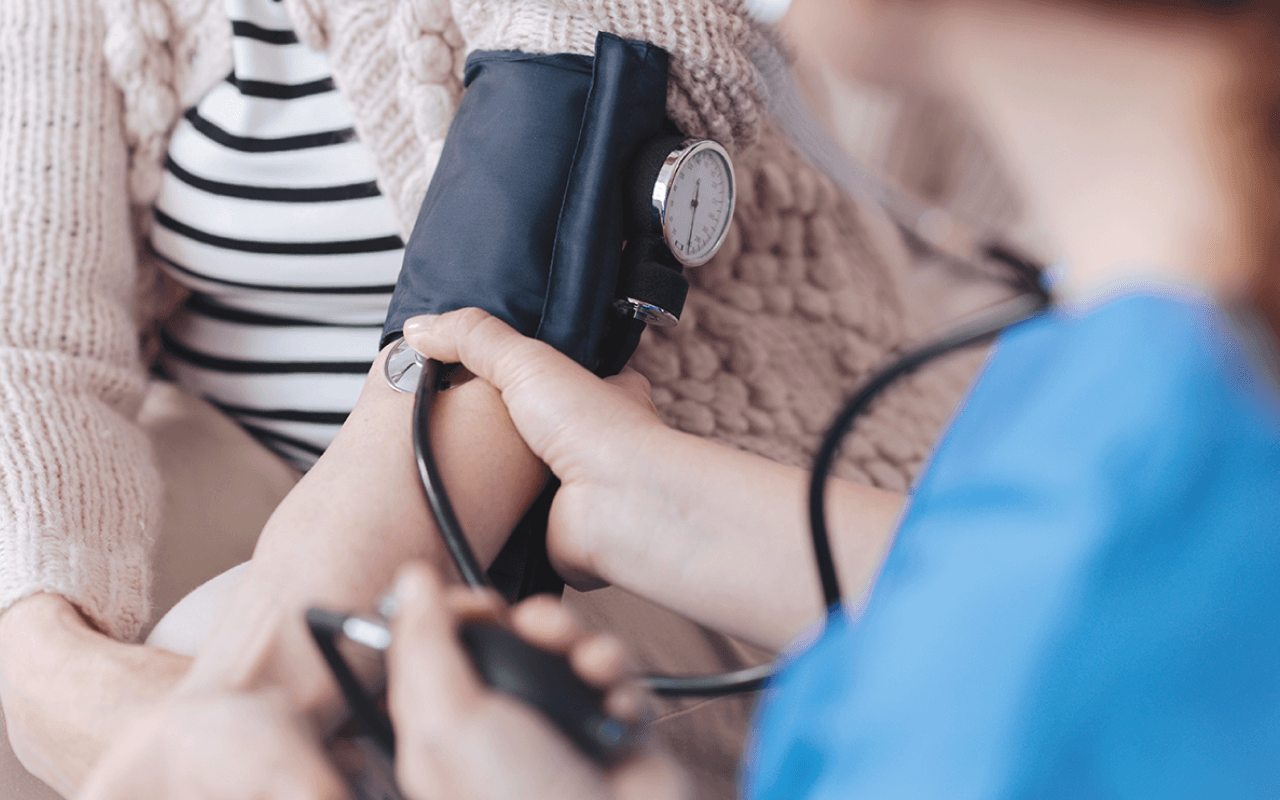
Atrial fibrillation (AFib) is an irregular heart rhythm that affects nearly 5 million people in the US.1 On its own, AFib doesn’t always damage the heart muscle, but when you add hypertension (high blood pressure) into the mix, your risk for serious health problems may increase.2
How High Blood Pressure Can Lead to AFib
High blood pressure means your heart and blood vessels are under constant stress. Over time, that extra pressure can:
- Weaken and stiffen arteries, making it harder for blood to flow normally.3
- Change the shape of the heart, causing the heart muscle to thicken or stiffen, which can throw off electrical signals.3
Together, these changes make it easier for AFib to develop. In fact, studies show that people with high blood pressure are about twice as likely to develop AFib.4
Why It Matters
Both AFib and high blood pressure raise your risk of stroke—and when they occur together, that risk climbs even higher.5 The good news: controlling your blood pressure can help prevent AFib or make it easier to manage if you already have it.
Doctors now often recommend aiming for a blood pressure <130/80 mm Hg (or close to it)6, especially if you’re at risk for heart problems.
What You Can Do
You have more control than you might think. Here are some proven ways to protect your heart:
- Follow your doctor’s recommendation:Medications for AFib and blood pressure work best when you take them consistently.
- Eat smarter: Try a heart-healthy diet like DASH, cut back on salt, and limit alcohol.
- Move your body:Regular activity lowers blood pressure and reduces AFib episodes.2
- Get some sleep: Practicing good sleep hygiene and treating sleep apnea can make a big difference.7
- Manage stress: Stress can impact both AFib and high blood pressure.8 Try meditation, yoga, or simply going for a walk.
If lifestyle changes and medication aren’t enough, your doctor might suggest other options. They are your best resource for finding a hypertension and AFib management plan that works for you.
The Bottom Line
High blood pressure is one of the biggest risk factors for AFib—but it’s also one of the most treatable. By staying on top of your numbers, following your doctor’s advice, and making healthy lifestyle changes, you can take charge of both conditions and lower your risk of stroke.
References
- 1. https://www.heart.org/en/health-topics/atrial-fibrillation/what-is-atrial-fibrillation-afib-or-af
- 2. https://www.ahajournals.org/doi/10.1161/HYPERTENSIONAHA.122.19459
- 3. https://www.bhf.org.uk/informationsupport/risk-factors/high-blood-pressure
- 4. https://www.mdpi.com/1648-9144/61/2/362
- 5. https://www.heart.org/en/health-topics/atrial-fibrillation/why-atrial-fibrillation-af-or-afib-matters/high-blood-pressure-afib-and-your-risk-of-stroke
- 6. https://www.ahajournals.org/doi/10.1161/HYPERTENSIONAHA.125.25418
- 7. https://pubmed.ncbi.nlm.nih.gov/36841492/
- 8. https://pmc.ncbi.nlm.nih.gov/articles/PMC10319071
Kardia personal EKGs do not check for heart attack and do not replace regular health checkups with your physician. Seek medical attention if you are experiencing any concerning symptoms or if you are having an emergency.


